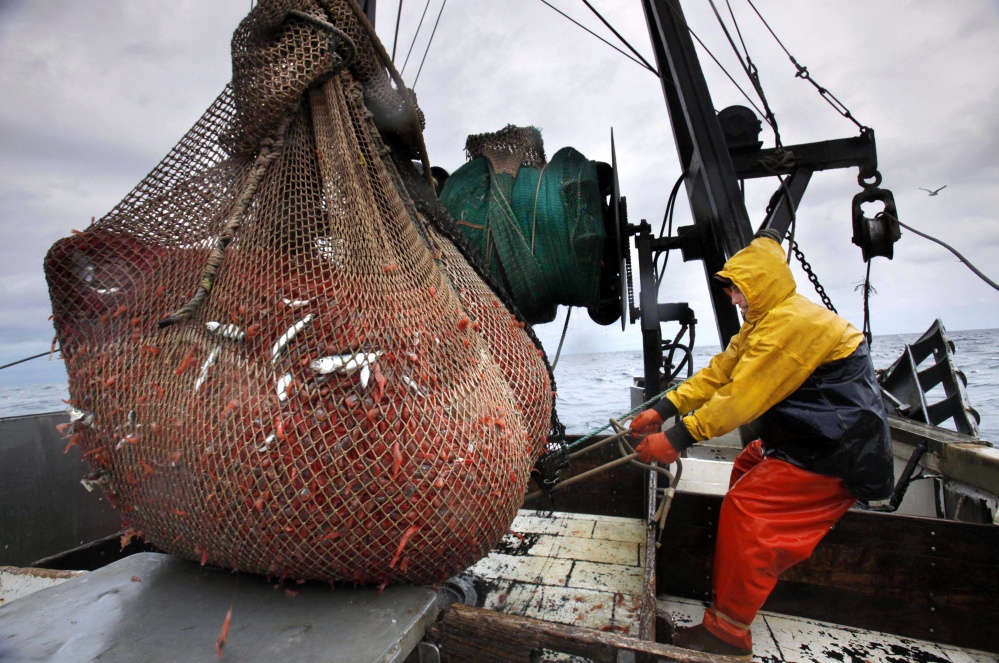Scientists say the Gulf of Maine shouldn’t be fished for northern shrimp for a second straight season because of concerns of warming ocean temperatures.
A technical committee that advises federal regulators is strongly recommending the extension of a moratorium on the fishery that began earlier this year. A draft of the committee’s report to the Atlantic States Marine Fisheries Commission, which regulates the fishery, says “long term trends in environmental conditions” are unfavorable for the shrimp.
The draft report pins the decline of the cold-water shrimp on rising ocean temperatures. The Northern Shrimp Technical Committee’s report advises regulators that “the depleted condition of the resource and poor prospects for the near future” warrant extending the moratorium into next year.
Fishermen from Maine, New Hampshire and Massachusetts fish for the small, pinkish, succulent shrimp in the early part of the year. The Atlantic States Marine Fisheries Commission’s Northern Shrimp Section had closed this year’s shrimp season for the first time in more than 30 years and is set to vote on next year’s season on Nov. 5.
The fishery’s estimated population has fallen by a factor of 14, regulators have said.
Some fishermen have spoken out against extending the closure. Many Maine shrimp trappers are lobstermen who use the fishery to make money during the winter, as the small shrimp are a popular restaurant item because of their sweet, tender meat.
“Not having a shrimp fishery will just be another blow to Maine fishermen,” said Ben Martens, executive director of the Maine Coast Fishermen’s Association.
Maine’s annual Northern shrimp catch began falling after 2010, a year in which fishermen caught more than 12 million pounds of the shrimp, the second-highest figure since 1973 according to state records. The catch declined to 563,313 pounds in 2013 before this year’s shut down, state records show.
Maine Department of Marine Resources Commissioner Patrick Keliher “will be discussing the science recommendations with his staff scientists and members of the industry,” said department spokesman Jeff Nichols.
Send questions/comments to the editors.



Success. Please wait for the page to reload. If the page does not reload within 5 seconds, please refresh the page.
Enter your email and password to access comments.
Hi, to comment on stories you must . This profile is in addition to your subscription and website login.
Already have a commenting profile? .
Invalid username/password.
Please check your email to confirm and complete your registration.
Only subscribers are eligible to post comments. Please subscribe or login first for digital access. Here’s why.
Use the form below to reset your password. When you've submitted your account email, we will send an email with a reset code.